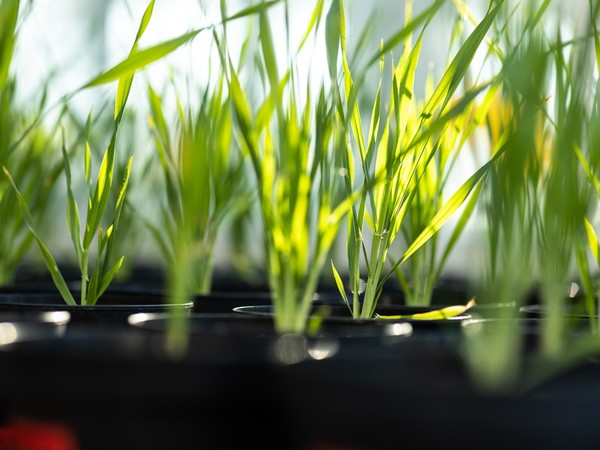Scientists from the Czech Institute of Research and Advanced Technologies (CATRIN) at Palacký University have decided to use the human antimicrobial peptide LL-37 produced in genetically modified barley grains to treat and prevent mastitis of dairy cows. They are testing this possibility together with a commercial partner in the SIGMA project – Proof-of-Concept program of the Technology Agency of the Czech Republic. The aim is to offer new possibilities in veterinary care and reduce the consumption of antibiotics in dairy cows.
Mastitis, or inflammation of the mammary gland, is one of the most common reasons for the use of antibiotics in dairy cattle. Dairy cows in the EU are treated with antibiotics approximately twice a year on average, and there is growing pressure from regulators as well as consumers to reduce the use of such drugs.
“There is a lack of affordable and effective products on the market that can prevent mastitis and are not based on antibiotics. That is why this project was initiated, building on our previous results in the production of the human peptide LL-37 in plants. We have managed to modify it so that the resulting protein containing LL-37 can be easily separated from undesirable components commonly found in barley grains and obtained in a relatively pure form. This is a unique approach that uses modern methods of molecular farming,” said Edita Holásková from CATRIN, the principal investigator of the project. According to her, interested parties from the field have already expressed interest in the product under development.
There are approximately 23 million dairy cows in the EU, and the use of antibiotics brings not only health risks but also considerable financial costs. The economic losses associated with a single case of clinical mastitis range from EUR 230 to EUR 460.
LL-37 is the only known human antimicrobial peptide from the cathelicidin family. In the human body, it is found, for example, in the skin, where it helps protect against infections in the event of injury, as well as in the mucous membranes, blood, and immune cells. It has a broad spectrum of activity against bacteria, viruses, fungi, and parasites, and unlike conventional antibiotics, microorganisms develop resistance to it much more slowly. Researchers at CATRIN are able to produce it in genetically modified barley.
The REMI-VET project (Use of Recombinant LL-37 to Reduce Microbial Load in Veterinary Breeding) was launched this year and will run until the end of 2026. Support from TA CR amounts to approximately CZK 1.5 million.
